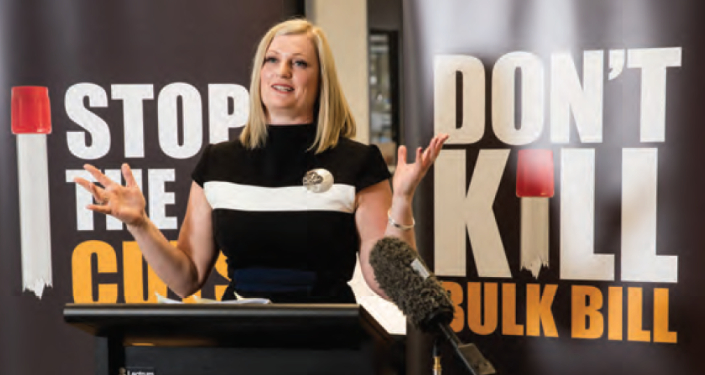By Anthony O’Brien
The disastrous bushfires that ravaged vast tracts of Australia last summer demonstrated the support that companies – and leaders – can provide amidst a dreadful community crisis. Fundraising and financial contributions were many and varied.
Even US heavy metal band Metallica reportedly chipped in with a A$750,000 contribution as part of total donations of more than A$250 million to charities, local fire services and brigades and animal welfare agencies.
However, Liesel Wett MIML, CEO of Australian Pathology, shows that corporate social responsibility (CSR) extends beyond financial contributions. Outside her day job, Wett also chairs the board of an independent aged care services provider, Goodwin Aged Care Services.
In 2016, Wett was involved in the substantial Don’t Kill Bulk Bill campaign which attracted more than 600,000 signatures for a petition rejecting cuts to funding for pathology services. The crusade forced the federal government to reverse its policy during an election campaign.
Caring leadership
Wett is driven to influence health policy agenda as she is passionate about the benefits for the community. “In my work with Goodwin, my leadership role involves guaranteeing vulnerable people have a high level of care.
“We are looking after older Australians who have worked their whole lives in the community, and we need to provide them with the best level of care. Part of achieving this level of care involves challenging the status quo.”
In 2014, the Goodwin board established a clinical governance framework that challenged its management team to meet several significant objectives. “The framework made our managers step up to the mark about what we were delivering,” recalls Wett. “We tried new models, and now we are a step ahead of the other providers in the support we provide to our residents.”
Wett says the experience she gains from her leadership role with Goodwin enhances her function with Australian Pathology. “In my roles with Goodwin and Australian Pathology, I am interacting with different parts of the community and stakeholders. One day I am communicating with the Prime Minister in my day job and the next day with an elderly resident.”
Wett also warns leaders and managers to be authentic in their desire to influence social change and in their CSR activities. The Goodwin board, for example, rotates its meetings between its aged-care facilities in Canberra. “Before each board meeting, we meet our residents to listen to their life stories. These connections have been so grounding for us because our residents are the reason we operate.
“Often their stories are very sad, and around 50% of all our residents don’t receive a single visitor. So, when we meet with them, our board members might be the only people our residents have spoken to apart from our staff.
“I love meeting them because they tell me the most amazing stories about their lives. However, our residents can tell when you’re not genuine.”



